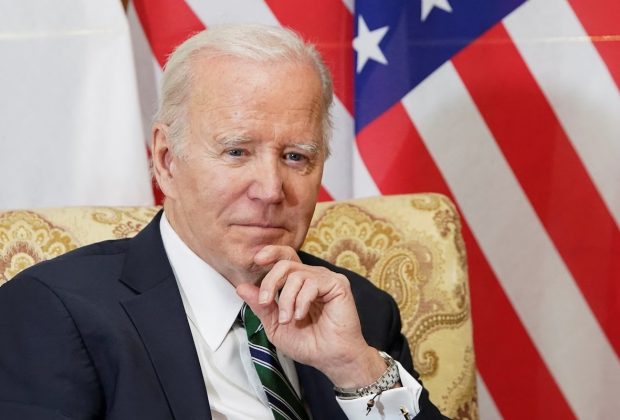By Amy Goldstein & David Ovalle | The Washington Post | APR. 13, 2023 | Photo by Kevin Lemarque
The Biden administration is proposing rules that would allow immigrants covered by DACA — the Deferred Action for Childhood Arrivals program — to qualify for health insurance through Medicaid and Affordable Care Act marketplaces, the White House announced Thursday.
The plan, which the White House says would benefit up to 580,000 people brought to the United States as children, would broaden the definition of who qualifies for those two insurance programs and one other. The expansion would rely on a regulatory change the Health and Human Services Department proposed Thursday that turns on two words: who has “lawful presence” in the country for purposes of being eligible for Medicaid, the Children’s Health Insurance Program and ACA marketplaces. It widens that umbrella to include DACA participants.
Such changes in federal regulations often take considerable time, with months-long periods for public comments. But a statement from the White House says: “We recognize that every day counts, and we expect to get the proposed rule done by the end of the month.”
The effort to make health coverage more accessible to this group of immigrants is part of a sharp reversal on immigration policy between the Biden administration and its predecessor.
The Trump administration sought unsuccessfully to dismantle the program, which was created in 2012 during the Obama era and protects people — known by advocates as “Dreamers” — who entered the United States as children and remained here unlawfully. In contrast, President Biden has been pressing Congress to create a path to citizenship for this group — unsuccessfully so far. In the meantime, the administration has been trying to use levers of executive power to widen the range of federal programs in which DACA participants are entitled to take part.
“We’re not done fighting for their pathway to citizenship, but we’re getting them the opportunities they deserve in the meantime,” Biden said in a tweet Thursday.
Until now, ACA insurance marketplaces have been closed to DACA participants. Those marketplaces are designed for consumers who do not have access to affordable health benefits through a job, and they provide federal subsidies to most of the 16 million people who have private health plans through these insurance exchanges.
Medicaid is the nation’s largest public insurance program, run jointly by the federal government and states. It provides coverage to about 85 million low-income people. It has not included DACA participants, but several states have used their own money to permit similar coverage to such people. In addition, 18 states have adopted an option, available for about two decades, to provide prenatal care to people regardless of their immigration status, according to data from the Kaiser Family Foundation, a health-policy organization.
CHIP has existed since the late 1990s as a form of public insurance for children of the working poor, with nearly 10 million youngsters currently enrolled.
Health insurance has been a particular sore spot for immigrants of all kinds, lawful and undocumented. As of 2021, the most recent data available, one-fourth of legal immigrants and nearly half of undocumented immigrants were uninsured, compared with about 1 in 10 U.S. citizens.
HHS Secretary Xavier Becerra said about one-third of the 580,000 people participating in DACA do not have health insurance coverage. “Today’s rule would change that,” he said in a statement.
If the administration’s proposal becomes final, it would help people such as Karla Garcia, 23, of Palm Beach County, Fla., whose parents brought her from Mexico when she was a toddler. Growing up undocumented in South Florida, she said, she and her family relied on free medical and dental clinics that serve the uninsured, scrounging for appointments and unable to select their doctors.
Now that she is pregnant, Garcia is getting coverage through a state program that provides prenatal care until her baby son is due to be born in July. Under the Biden administration’s plan, she would then qualify for Florida’s version of Medicaid, which provides postpartum care for a year. And after that, because she earns slightly less than $20,000 a year at a job selling cellphones, the plan would then allow her to buy a subsidized health plan through the ACA insurance marketplace.
“This change is going to be something very big on my end, being finally able to see better doctors and get the health-care coverage that a lot of America already receives,” Garcia said. She said she believes DACA participants like her deserve access to insurance.
“We do work,” Garcia said. “We pay taxes.”
Benefits for DACA recipients vary by state, but undocumented immigrants are generally ineligible for federal programs such as financial aid for college and covid relief.
DACA recipients were brought to the United States as children but do not have permanent legal status. Under a 1982 Supreme Court ruling, they are eligible for a public school education until they graduate from high school, but, until President Barack Obama announced the DACA program, they were unable to work legally and lived in constant fear of being deported. As many as 800,000 people have enrolled in the program, but fewer than 600,000 remain active in the program.
The future of DACA is pending in a federal court in Texas.
U.S. District Judge Andrew S. Hanen ruled in 2021 that the DACA program was unlawful, agreeing with Republican plaintiffs that Obama had lacked the authority to create the program without an act of Congress. Hanen barred the government from accepting new applicants but has allowed existing participants to renew their work permits for now.
The Biden administration issued a rule last year in an effort to preserve DACA, but Republican states have asked Hanen to also declare that unlawful and to gradually bring the program to an end.
Sen. Tom Cotton (R-Ark.) swiftly denounced the administration’s move, calling it “an insult to American citizenship.” In a tweet, Cotton said: “Rewarding illegal immigration will bring more illegal immigration.”
Civil liberties and immigrant rights organizations and groups supporting health care for the poor, countered that such coverage is warranted. Maribel Hernández Rivera, an American Civil Liberties Union deputy national political director, praised the Biden administration for what she called “this humane step forward.”
“It’s the right thing to do and reflects President Biden’s continued recognition of DACA recipients’ dignity and contributions to our nation,” she said.






